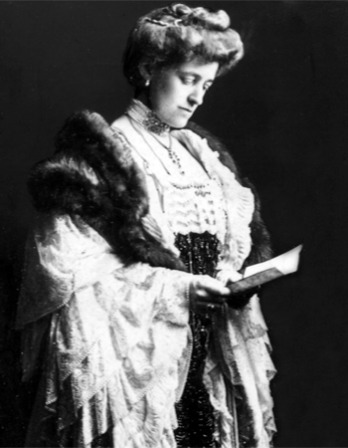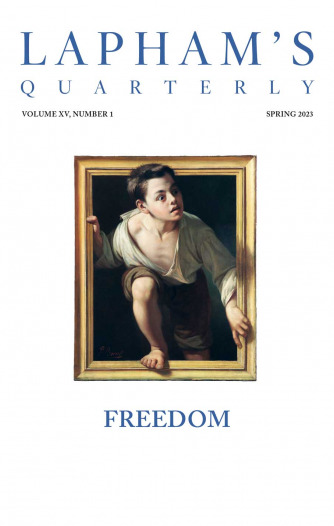In relating all I know of America, I surely must not omit so important a feature as the cooking. I am hardly capable, I fear, of giving a very erudite critique on the subject; general observations therefore must suffice. The ordinary mode of living is abundant, but not delicate. They consume an extraordinary quantity of bacon. Ham and beefsteaks appear morning, noon, and night. In eating, they mix things together with the strangest incongruity imaginable. I have seen eggs and oysters eaten together; the sempiternal ham with applesauce, beefsteak with stewed peaches, and salt fish with onions. The bread is everywhere excellent, but they rarely enjoy it themselves, as they insist upon eating horrible half-baked hot rolls both morning and evening. The butter is tolerable, but they have seldom such cream as every little dairy produces in England; in fact, the cows are very roughly kept compared with ours. Common vegetables are abundant and very fine. I never saw sea kale or cauliflowers, and either from the want of summer rain, or the want of care, the harvest of green vegetables is much sooner over than with us. They eat the Indian corn in a great variety of forms; sometimes it is dressed green and eaten like peas; sometimes it is broken to pieces when dry, boiled plain, and brought to table like rice; this dish is called hominy. The flour of it is made into at least a dozen different sorts of cakes, but in my opinion all bad. This flour, mixed in the proportion of one-third with fine wheat, makes by far the best bread I ever tasted.
I never saw turbot, salmon, or fresh cod, but the rock and shad are excellent. There is a great want of skill in the composition of sauces, not only with fish but with everything. They use very few made dishes, and I never saw any that would be approved by our savants. They have an excellent wild duck, called the Canvass Back, which, if delicately served, would surpass the black cock, but the game is very inferior to ours; they have no hares, and I never saw a pheasant. They seldom indulge in second courses, with all their ingenious temptations to the eating a second dinner, but almost every table has its dessert (invariably pronounced “desart”) which is placed on the table before the cloth is removed and consists of pastry, preserved fruits, and creams. They are “extravagantly fond,” to use their own phrase, of puddings, pies, and all kinds of “sweets,” particularly the ladies; but are by no means such connoisseurs in soups and ragouts as the gastronomes of Europe. Almost everyone drinks water at table, and by a strange contradiction, in the country where hard drinking is more prevalent than in any other, there is less wine taken at dinner; ladies rarely exceed one glass, and the great majority of females never take any. In fact, the hard drinking, so universally acknowledged, does not take place at jovial dinners, but, to speak plain English, in solitary dram drinking. Coffee is not served immediately after dinner but makes part of the serious matter of tea drinking, which comes some hours later. Mixed dinner parties of ladies and gentlemen are very rare, and unless several foreigners are present, but little conversation passes at table. It certainly does not, in my opinion, add to the well-ordering of a dinner table to set the gentlemen at one end of it and the ladies at the other, but it is very rarely that you find it otherwise.
Their large evening parties are supremely dull; the men sometimes play cards by themselves, but if a lady plays, it must not be for money; no écarté, no chess; very little music, and that little lamentably bad. Among the blacks, I heard some good voices, singing in tune, but I scarcely ever heard a white American, male or female, go through an air without being out of tune before the end of it, nor did I ever meet any trace of science in the singing I heard in society.
From Domestic Manners of the Americans. The mother of the novelist Anthony, Trollope in 1828 visited the experimental community of social reformer Fanny Wright in Tennessee before settling with her family in Ohio for two years. After returning to England, she published this first work of nonfiction to wide acclaim in 1832. Her antislavery novel of 1836, The Life and Adventures of Jonathan Jefferson Whitlaw, predates Uncle Tom’s Cabin by fifteen years.
Back to Issue





